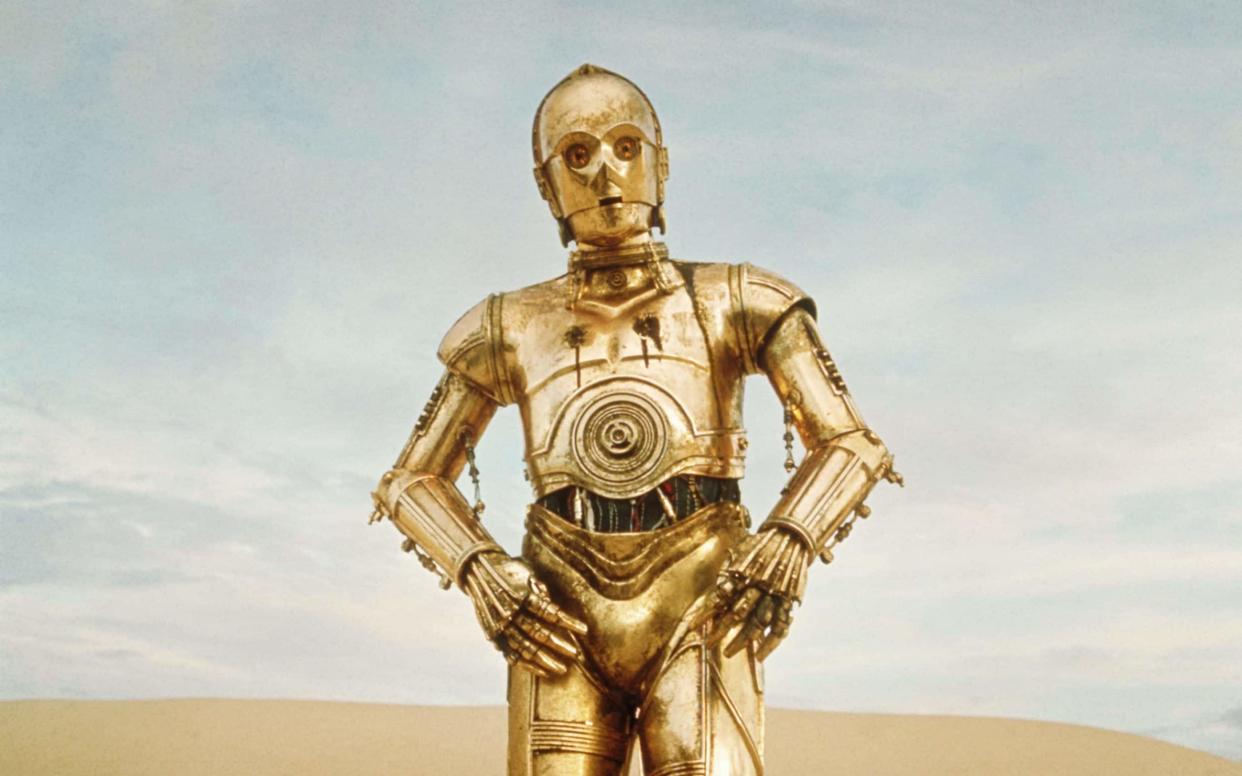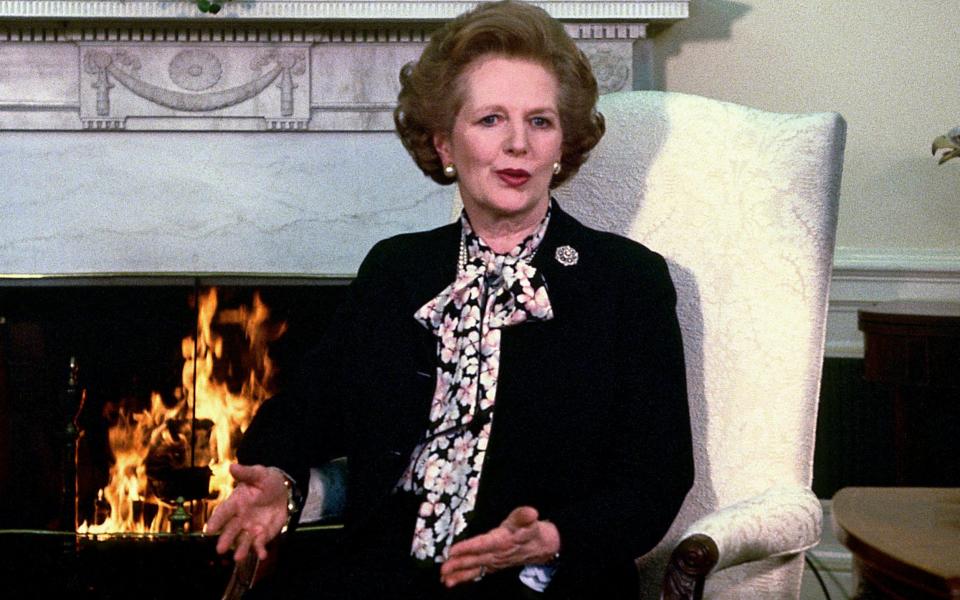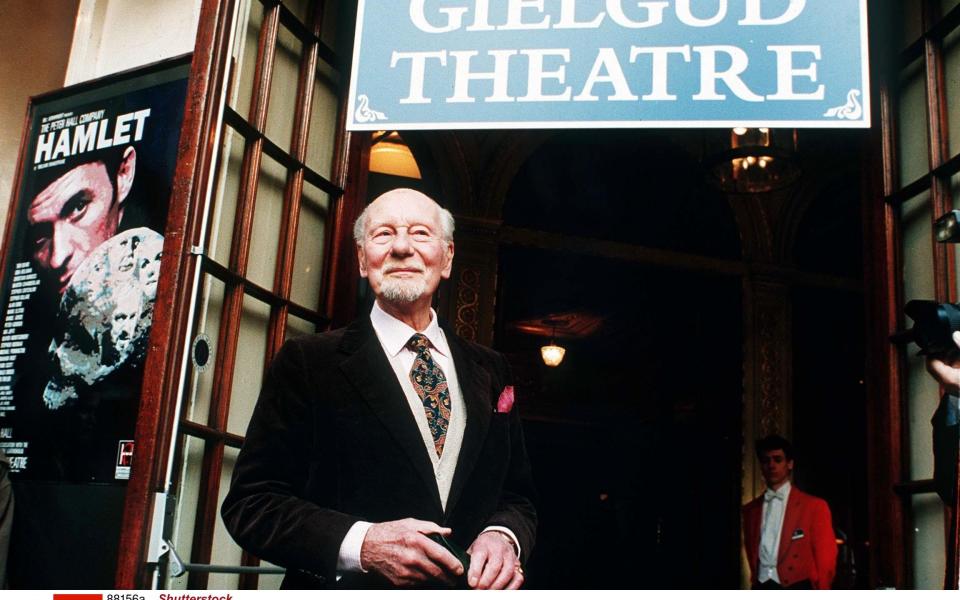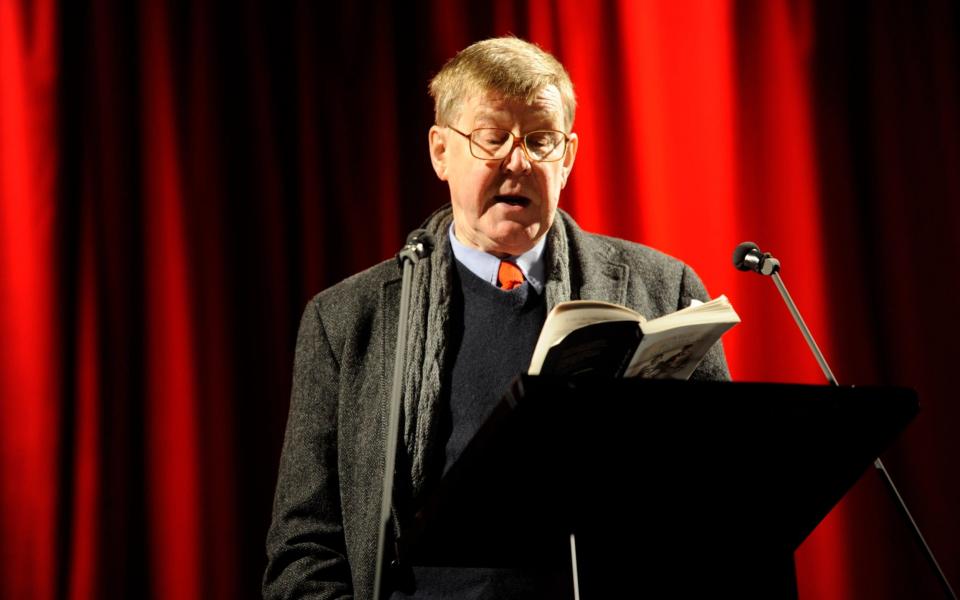John Gielgud, Mrs T and the day I turned down C-3PO

- Oops!Something went wrong.Please try again later.
Fifty years ago, I began my acting career playing Puck in a student production of A Midsummer Night’s Dream at Rada. In the years since, I have appeared in BBC productions of David Copperfield and Nicholas Nickleby, in hit series such as Doctor Who and Birds of a Feather, and not quite made it into the Star Wars franchise. Most recently, I played Oberon in a Globe production of Dream, giving a nice bit of circularity to a career that has had its ups and downs.
The life of a jobbing actor is a precarious one, of course, and I have found myself doing all manner of things – busking, window cleaning and even selling antiques with Roald Dahl. But I don’t regret it at all and the wonderful thing about the acting life is the host of brilliant, creative, eccentric, maddening, colourful people you pick up en route. From my encounters with Alan Bennett to Alan Bates to Alan Ayckbourn (and that’s just the Alans), I have had a ball. I may not be living in a Beverly Hills mansion, but I feel all the richer for my experiences.
In a galaxy far, far away
While working at the RSC in 1975, I received a call from my agent Peter Crouch (not that one). He had secured me an audition at 20th Century Fox to play the young male lead in a new film. “You are seeing the guy who directed American Graffiti [George Lucas]. I think he saw you as the boy in Henry V.” When I met Lucas the next day he was sitting behind a large desk, staring fixedly at its empty surface. He said: “This film is a cross between 2001: A Space Odyssey and The Four Musketeers.” I laughed.
“You think it’s funny?”
“Well, it does sound amusing,” I said sheepishly.
He changed the subject: “How is your American accent?”
“Good for an Englishman,” I replied.
“Well, we’ll probably dub you anyway.”
Several days later my agent rang me. “Hello darling. You didn’t get Luke Skywalker but they have offered you a gold robot. I’ve turned it down.”
“Oh.”
“Well it could be anyone, darling – they won’t even see your face.”
“What were the terms?
“£100 a week for five weeks. Oh, and 0.5 per cent of the profits.” To put this in perspective, that is double what I was being paid at Stratford. I moved on, but shortly afterwards my agent came back to me. “Star Wars have been on again. This time the offer is to dub the first film and then play ‘the gold robot’ in [the second film] The Empire Strikes Back.” “I can’t do that to the actor who’s already playing it, Peter.” So I turned it down again, and did a tour of a French farce called Some of My Best Friends are Husbands.
On meeting Maggie Thatcher

As a friend of Nigel Havers (we worked together on Nicholas Nickleby), I got to know his father, Sir Michael, who was the MP for Wimbledon and attorney general in Margaret Thatcher’s first government. I remember when it was Michael’s turn to invite the Cabinet to dinner and, to spice things up a little, he asked Nigel to invite some of his actor friends. I was invited and so was Peter Bowles, who was starring in To the Manor Born at the time and, it turned out, was Thatcher’s favourite actor. The two actually arrived at the same time and took the lift up to the flat. Thus, when Sir Michael introduced them, Peter replied: “We have been intimate already.”
“No, we have not,” snapped Thatcher and swept off.
Unfortunately, Bowles and Thatcher were seated next to each other at dinner, during which she kept her back resolutely turned on him.
The gaffes of John Gielgud

The great acting knight was famous for putting his foot in it and the actor Anthony Nicholls, formerly my father-in-law, told me a story about how Gielgud once threw a party to introduce his friends to his new boyfriend, Rupert. After leaving the party, Anthony said: “I so enjoyed meeting Rupert.”
“Rupert? Who’s Rupert?” asked Sir John.
“Your new boyfriend!”
“Oh, oh, oh. His name isn’t Rupert.”
“But that was how you introduced him to me.”
“Did I? Oh dear,” said Sir John, flustered. “That’s the name we give his c---.”
Alan Bennett reverses the charges

I met Alan through his great friend Patricia Routledge. We had appeared in the BBC version of David Copperfield in 1974 (I was Tommy Traddles, she was Mrs Micawber) and we had remained close. One day, Pat wanted to go to Haworth as research for an audiobook of Wuthering Heights. She invited Alan to the B&B where we were staying for dinner. “Will that be good enough for him?” I asked. “He’ll love it, whatever it’s like. It will be copy for him.” He arrived looking immaculate in his uniform of sports jacket, pullover and grey flannels, and we went into the bar which was all wrought iron threaded with plastic vines. Pat got up to phone her father to say good night, so we combined the few coins we had between us for the payphone in the hall. Eventually, the coins ran out and Alan phoned the operator: “This is Charlotte Brontë calling from a Haworth phone box. Will you accept the charge?” It was a very funny evening and I enjoyed seeing life through the prism of Alan’s mind. Eventually, he said: “No one should live with a writer. It’s such a lonely job and makes people impossible to live with. But I’ve had a good day today.”
A king among men
Robert Stephens was famous for his portrayal of Atahualpa in Peter Shaffer’s The Royal Hunt of the Sun, and for his marriage to Maggie Smith. He was also known for walking offstage in The Double Dealer at the National Theatre, leaving Ralph Richardson alone, unable to finish the scene and calling for the curtain to fall. Robert was discovered front-of-house, in full costume, propping up the bar, as the audience filed out for an early and unplanned interval. Robert went missing for several days. When he was due to come back, Peter Hall went around The Double Dealer company saying, “We have Robert back and we must be extra nice to him. He is a genius and very sensitive.” To which an actor replied, “Do us all a favour and sack him. He is an unprofessional drunk.” Robert was reinstated.
When we did our four months together on a Granada series called Studio we commuted together regularly by train to Manchester. We sat near the buffet car and Robert would go off for coffee, bringing one back for me but never having anything himself. He never let me buy the coffee and eventually I twigged that he was having a stiff drink at the counter. One morning I said, “Robert, I’m getting the drinks today. What would you like? A vodka and orange?”
“Good god, no.” And so the charade continued.
When Robert played King Lear at Stratford he received wonderful notices. Friends in the cast said: “He’s amazing, constantly inventive, and he’s not drinking.” When I went to Stratford he suggested that we meet in the Arden pub, opposite the theatre. He joined me there and I asked him what he would like to drink.
“Nothing,” replied Robert, reaching behind a menu on the bar for a glass of clear liquid…
But his King Lear was a thing of legend and he had the guts to sustain it. In the months we worked together Robert told endless stories – Maggie this, Larry that – but, whether at 7.45pm or 3am, he never once repeated himself.
Stop Me If I’ve Told You This Before, by Peter Bourke, is due to be published later this year

